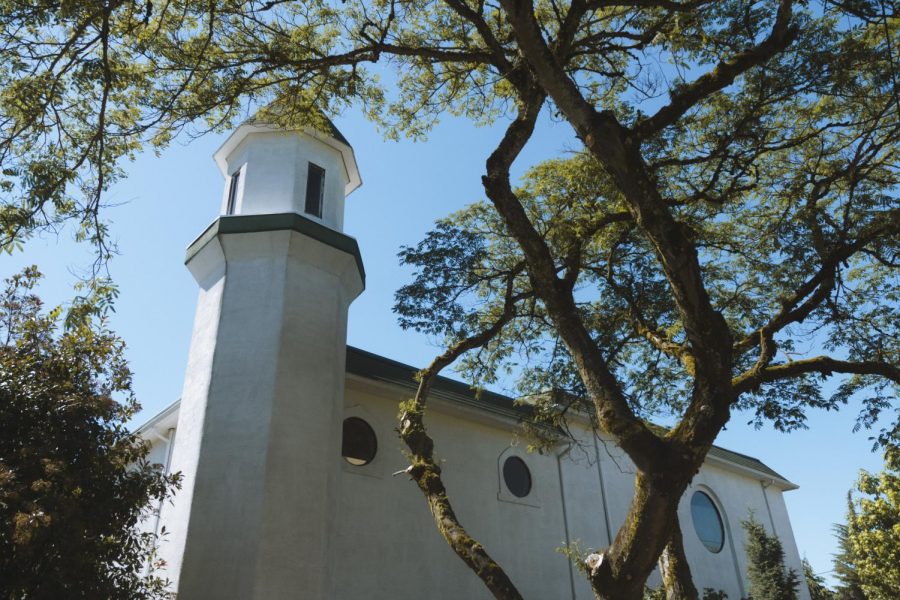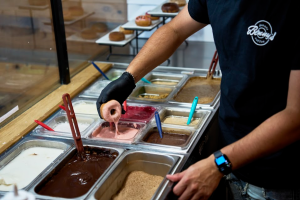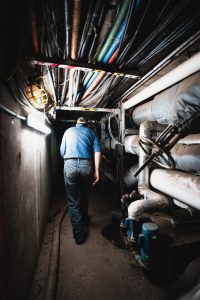- Beavers Digest
- Beavers Digest / Culture
- Beavers Digest / Culture / Community
- Beavers Digest / Experience
Reflecting on Ramadan: Lessons for the Future
June 4, 2021
While Ramadan ended almost three weeks ago, the effects of the month’s celebrations and traditions stay with those who observed it long afterwards.
This year marked the second time Ramadan was observed during the COVID-19 pandemic, with Muslims and mosques adapting to health guidelines to avoid socializing and keep everyone safe.
Taha Elwefati, the president of the Associated Students for Oregon State University’s Cascades campus, said because of the minimal Muslim community in Bend, where the OSU Cascades campus is located, his observance of Ramadan did not actually change much from pre-pandemic times.
“There isn’t a mosque or many Muslims in Bend, so I celebrate and fast with family, and have even had a couple of friends who have tasted with us,” Elwefati said. “So it’s about the same for me.”
Dr. A. Y. Lafi, a published poet, educator, physicist and engineer who worked for 25 years at OSU, General Electric, Shaw Power, Chicago Bridge & Iron and Westinghouse, said the entrance to the Corvallis Islamic Center has hand sanitizer and face masks on a small table, while the floor carpet inside has red tape marking socially-distanced spaces for prayer areas. In addition, the mosque only allows a limited number of people as determined by Oregon health authorities and asks people to bring their own prayer rugs.
For those who don’t know what Ramadan is, Lafi explained most of the world’s 1.8 billion Muslim population observed Ramadan this year from April 13 to May 12. The start of the month was determined by the sighting of the crescent moon of the month of Ramadan which is the ninth month of the Islamic Calendar and its end was determined by the sighting of the next month called Shawwal.
“Ramadan is celebrated by fasting during the day from dawn to sunset,” Lafi said. “Fasting is [an] obligatory act for all physically and mentally-able Muslims. There is an exception for those who cannot. It provides Muslims with a key experience in their faith.”
He also clarified that Ramadan is a month of joy and blessing, not a month of starvation and unwelcome self-denial, as some might think.
“Last year, many mosques or community centers were closed completely,” Lafi said. “The number of people who attended those which stayed open was significantly less than that of the normal years. The traditional group evening feasts – called Iftar – were ceased, and Muslims eliminated gathering with their community members.”
For the second time of Ramadan season, Lafi said nothing changed from the previous year except that people had time to adapt to health measures that became a part of daily life.
For the recent Eidul-Fitr or simply Eid on May 13, Lafi noted the Corvallis Islamic Center was able to get permission from the city to safely perform the prayer for Eid in Avery Park, following health guidelines.
“Most Muslims spent the last two Festivals of Breaking the Fast (Eidul-Fitr) in addition to the third one, the Festival of Sacrifice (Eidul-Adha) at homes,” Lafi said. “The normal activities during these festivals, which were ceased or limited during the pandemic, are [a] time for joy and reunion on both family and community levels. People wear new clothes, children get their gifts and family and friends come together for large meals. We missed a lot of the joy in socializing with our community, friends and family during these festivals due to the pandemic.”
In the meantime, both Elwefati and Lafi were looking on the bright side to persist through the pandemic.
For Elwefati, one nice aspect of attending class remotely during Ramadan is having a recorded option, noting that while fasting, sleep schedules can get messed up and make early classes hard to attend.
Lafi said his favorite part is the feeling that you are being enriched, spiritually elevated and self-disciplined all the time during the month of Ramadan.
“I am hoping [by] continuing [the] full vaccination process, herd immunity will be reached,” Lafi said. “I encourage everybody to continue following religiously the guidelines set by the public health authorities to reach this goal within the next [few] months. We pray to Allah to help us, by doing so, to help ourselves, our families, our community and the whole nation in large and that life goes [back] to normal.”
According to Lafi, Ramadan is a way to feel the needs of the poor and those who are less fortunate, and to sympathize with human suffering everywhere.
“It is a way to build character and a healthy body, which are needed for creative thoughts and beneficial work in serving humanity,” Lafi explained. “It is a period of training for gaining self-discipline and courage to counter any hardships and changes with a great deal of enthusiasm and a new spirit of determination.”
One of the takeaways from observing Ramadan during the pandemic for Elwefati was simply acknowledging that it’s been a really hard year for everyone and for Muslims.
“My favorite part of Ramadan is the perspective it gives you on our everyday problems,” Elwefati said. “It really makes you realize how much we take for granted.”






